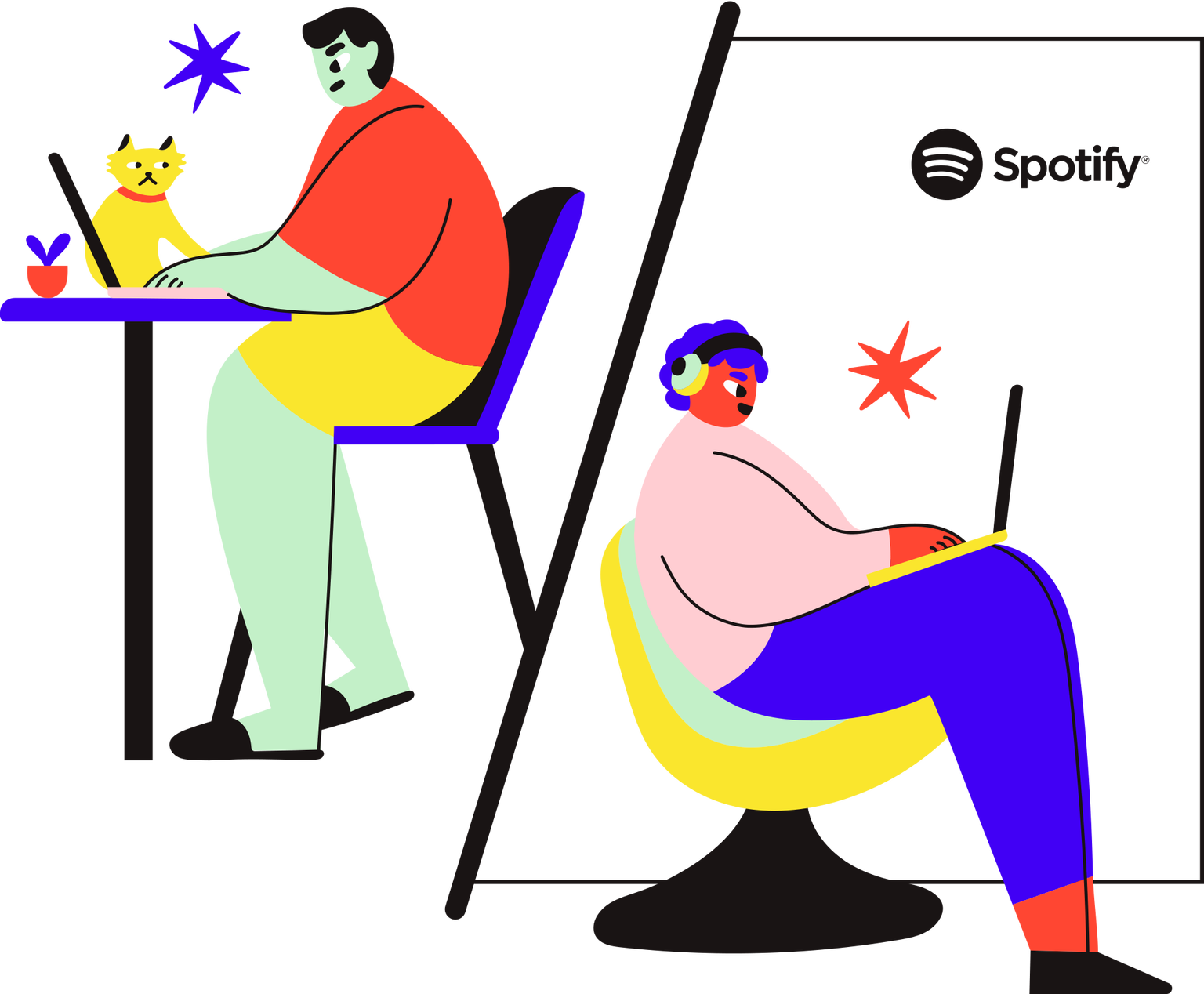Spotify announce new ‘Work From Anywhere’ approach to staffing
Image Credit: Spotify
No more commute! Staff at Spotify will now be able to work from wherever they’d like… and keep their salaries.
Spurred on by the pandemic, Spotify are now implementing a ‘Work From Anywhere’ policy for their staff. The company was already re-evaluating the way their workforce operated before Covid-19 hit and forced staff to work remotely, discussing the future of work and what an inclusive, flexible workplace looks like.
Spotify staff will now be encouraged to elect a ‘Work Mode’. That means they can specify whether they’d prefer to work at home or in the office – or a combination of the two, and where in the world they want that to be. Staff can even work from a different country to the main offices in the US, as long as they’re not in an awkward time zone. And they can keep the same salaries as beforehand.
The streaming giant has set out a few points to justify the decision:
- Work isn’t something our people come to the office for, it’s something they do.
- Effectiveness can’t be measured by the number of hours people spend in an office. Instead, giving people the freedom to choose where they work will boost effectiveness.
- Giving our people more flexibility will support a better work-life balance and also help tap into new talent pools while keeping our existing band members.
- A distributed-first structure will challenge us to improve our communication and collaboration practices, processes, and tools.
The move suggests that the future will see Spotify reassessing the use of their New York and San Francisco offices, too. In a statement the company said:
The ultimate goal of our new design approach is to ensure that employees have a place where they can focus, collaborate, and create —whether that’s at a desk, in a conference room, or in cafe spaces.
Just as the Covid-19 pandemic has completely upended the music world, so too has the world of corporate work been rendered unrecognisable. For many companies, this has prompted a new interrogation of whether the way workplaces functioned beforehand unlocked the best of their staff’s potential.
